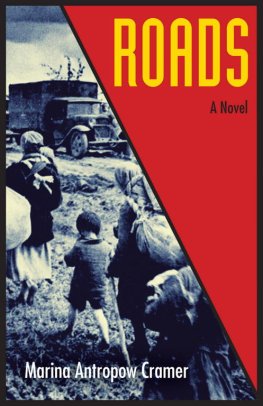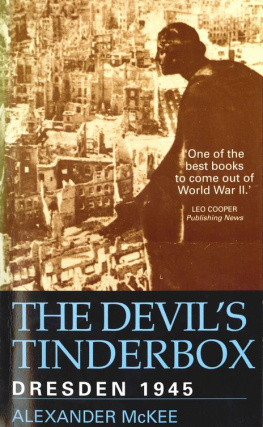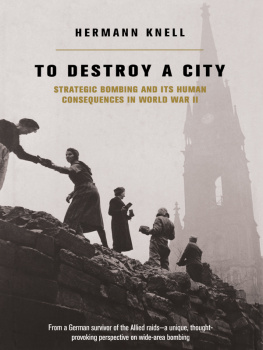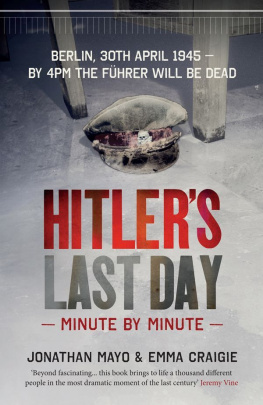Marina Antropow Cramer
ROADS
But to me the exile is forever pitiful,
Like a prisoner, like someone ill.
Dark is your road, wanderer,
Like wormwood smells the bread of strangers.
Anna Akhmatova, I Am Not with Those Who Abandoned Their Land, trans. Judith Hemshemeyer
All those you really loved
Will always be alive for you.
Anna Akhmatova, And All Those Whom My Heart Wont Forget, trans. Judith Hemshemeyer

IN THE END, getting away was easy.
They set off across the field through ankle-high summer-browned grass, heading for the road, Filips shovel swinging by his side. Ilya set the pace, purposeful but not too fast. They walked abreast, heads down.
Keep walking, Ilya said softly, glancing sideways at his son-in-law. Dont look back. Hell think were going to work on the road.
With a rucksack and all our belongings? Filip thought, but merely grunted in reply, refusing to look at the older man, expecting at any moment a shout, a bullet in the back. The old man had to be crazy, thinking two Russian men in German uniform, ROA insignia on their sleeves, could expect to survive in this alien land, even if the war was over. Wasnt the American camp they had just left behind their best hope?
When they reached the shade of the linden trees that lined the road, the men stopped and turned. Across the field they had just crossed, the camp looked small, a forlorn grouping of gray barracks, a dusty yard, a neglected watchtower, a wisp of smoke rising from the kitchen chimney, where even now the next meal they would not eat was being prepared.
And there was Anneliese, carrying a basket of laundry to the officers quarters, throwing her brash laugh over her shoulder at a passing remark. His eye caught the glint of sunlight on her cropped auburn hair, hair he knew to be fine and smooth and smelling of almonds. Filip suffered a momentary twinge of regret, a little ache at the back of the throat. Did Anneliese care that he had not said good-bye?
A few men milled around the yard with no apparent purpose. Some stood in small groups or squatted in a circle where, Filip knew, there would be dice or a card game in progress. The lone sentry stood with his back against a fence post, one leg bent back at the knee, the sole of his booted foot resting against the fence. He lit a cigarette, tossed the match into the scrubby grass. Thats what I want, thought Filip. An American cigarette.
SHE HAD WANTED to be a nun. As a young child, Zoya had studied them, marveling at their ageless appearance. Their faces were either smooth as eggshells, as if their very skin had absorbed the translucent glow of the thousands of candles with which they marked their days, or so finely wrinkled, fragile and deeply etched like a fallen leaf, that she could not imagine they had ever looked otherwise.
When she was older, she admired their bearing, the dignified humility, austere gentleness. Mysterious virginal passion. Awestruck, she never dared talk to them, only nodding reverentially if their glances happened to fall in her direction.
She saw them only at church. They would come from the nearby convent on service daysSaturday evening, Sunday Mass, holidays, and, if asked, weddings, christenings, and funeralsto sing the hymns and responses and read the Psalter selections while the priest carried out his secret duties inside the curtained altar. To help you forget about everyday things, and think about being a good person, Father Yefim had explained when she once asked about the reason for these interludes of monotonous recitation when nothing seemed to be happening.
She wanted to ask, Isnt it just the opposite? The cool, semidark interior, the hypnotic, melodious drone of archaic Slavonic words whose full meaning was only revealed after years of arduous study, did these really make you think about your soul? But she did not dare contradict the priest; perhaps when she was older, she would understand.
Zoya loved the nuns thin voices, the way they seemed to reach only half volume, chanting almost to themselves, conversing with their God. She wanted to be like them, to wear the severe robes that hid their bodies, not only from the eyes of the world but even from themselves. At seven, after making her first Communion, she was permitted to tend the candles, gathering the burnt-down stubs into small buckets placed discreetly along the walls, delivering them, when nearly full, to the sacristan, who passed them on to the nuns to melt down into new candles. Father Yefim warned her against taking pride in her small task, but she knew it was important, a vital part of the cycle that placed her, however indirectly, in touch with the holy women.
By the time she turned twelve, Zoya had taken to wearing a scarf, draped to cover every strand of her glossy black hair, and tied modestly at the nape of her neck. While she grew through adolescence and into young womanhood, it made her even lovelier, setting off her perfect Grecian features, the fine straight nose, deep black eyes, perfectly proportioned mouth.
Why hide yourself away? her mother had protested. How will you ever be a bride if you never go dancing?
I will be a bride of Jesus. Dancing does not interest me.
The day she fell in love with opera it was raining. It had always been there, the music, in her home, on the records her father played evenings or Sunday afternoons while her mother napped or gossiped with neighbors. Zoya paid little attention at first, absorbing the music as naturally as breathing, humming along with favorite passages while dressing her doll, leafing through a picture book, daydreaming. Then, with the rain beading down the parlor window, the air serenely gray, she was suddenly listening. She was entranced with the sound, the harmonies that pleased her ear, the purity that pierced her heart.
When he noticed her interest, her father told her the stories. It all began to make sense. She did not need to understand the words; as with church, she could absorb the sonorities and follow the narrative, gleaning more and more meaning with repeated listening. It was secular, yes, but it carried the clearest of moral messages: evildoers were punished, the selfish or guilty suffered the consequences of their transgressions, the clean of heart received their reward. More often than not, they had to die for it, transported by sacrifice to ecstatic salvation. She wept, filled with desire to suffer, to be Gilda, Marguerite, Mim, Tatiana.
And the spectacle! She would never forget traveling with her father to Kiev to visit relatives, going with them to the opera house to see Carmen. She was thirteen.
It was glorious. She tried reminding herself it was entertainment, the devils way of distracting her from pure thoughts, as Father Yefim would say. But from the overtures opening chords, she was bewitched by the blazing lights and splendid, colorful costumes, her resistance defeated by the powerful emotions playing out onstage.
Thinking about it later, she told herself, Carmen dies with no hope of redemption because she is wicked and self-indulgent, unlike the virtuous Micaela, who is faithful and good. And dull. Secretly, Zoya cherished the high drama of Carmens story, her valiant death at the hands of the jealous Don Jos a fitting testament to the honesty of her private outlaw creed. Would she, Zoya, be capable of such intense integrity? It was a dangerous, troubling question, implying layers of interpretation behind the superficial concepts of right and wrong she had so far accepted on faith. She pushed it out of her mind.








